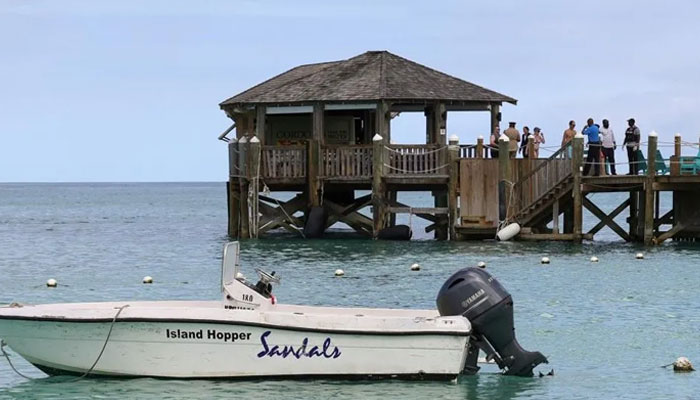Bahamas fatal shark attack victim revealed to be newlywed woman from Boston
Bahamas fatal shark attack occurred less than a mile from the shore, near Nassau, the Bahamian capital
December 05, 2023

Local police report that a 44-year-old US woman from Boston lost her life in a shark attack while paddleboarding off New Providence island in the Bahamas.
The incident occurred less than a mile from the shore, near Nassau, the Bahamian capital. A male relative who accompanied her in the water escaped unharmed.
In 2022, there were 57 unprovoked shark attacks globally, according to the International Shark Attack File.
At a news conference, Sgt Desiree Ferguson of the Royal Bahamas Police Force stated that a lifeguard from a nearby resort witnessed the attack and promptly provided assistance.
Despite efforts, the victim, who suffered severe injuries to the right side of her body, including the hip region and upper limb, was declared dead at the scene after CPR.
The specific shark species involved remains uncertain, with authorities yet to confirm details.
While a local jet ski operator mentioned that the victim was a newlywed, this information awaits official verification.
This tragic event follows a recent shark attack in Mexico, where a woman swimming with her daughter lost her life.
Notably, the Bahamas has witnessed other incidents, including the disappearance of a German woman last month and a shark attack resulting in a leg amputation for a US woman in June.
Statistics from the International Shark Attack File indicate approximately 32 unprovoked shark attacks reported in the Bahamas since 1749. Globally, the odds of a fatal shark attack are approximately 1 in 4.3 million.
In 2022, there were 57 confirmed unprovoked shark attacks, along with 32 provoked incidents. Surfers and board sports enthusiasts accounted for 35% of cases, while swimmers and waders constituted 43%.











